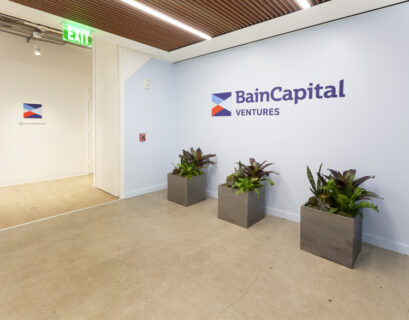
Tanay has worked with Kedaara since 2019. Prior to joining Kedaara, Tanay was at True North from 2018-2019, and previously was with Kotak Investment Banking, in Mumbai. Tanay holds a B.E. in Electronics & Instrumentation from BITS Pilani. Tanay will be sharing his experience from his stint at Kedaara, focusing on sharing insights about the PE industry in India.
Interview
How did you recruit for this role? What would your advice be for potential candidates aspiring to get here? (recruiting strategy, cycle, process etc.)
Like most PE jobs at the pre-MBA level in India, I was approached by a headhunter for the role. Most firms tend to utilize any one of the multiple headhunters (Michael Page/ Native/ IKYA etc.) who operate in India today. In terms of planning one’s recruitment strategy, it would be best to proactively reach out to members of teams at these firms who look after hiring specifically for PE/VC, either through LinkedIn or through one’s personal network.
These firms also tend to conduct outreach programs and networking events for prospective candidates to provide them a chance to interact with and understand the PE/VC landscape in India and network with representatives of funds looking to recruit in that cycle.
In terms of recruiting strategy, candidates should ideally reach out to junior professionals at their target firms to try and learn as much about the role and the hiring process as possible. They should be clear in terms of the expectations from the role, skill sets required, and whether the fund has a strong preference for certain kinds of backgrounds and the compatibility of that preference with one’s own background. Alums of one’s undergrad institution can be a helpful source to mine for connects. One should target those funds which play to the strengths of their professional background.
What are the key skills that are required for this role?
In no particular order, the key skills that are relevant for the job would be a strong foundation in corporate finance, familiarity with analysing financial statements, ability to work quickly and efficiently with large amounts of complex data and synthesizing that information into clear and actionable insights. Needless to say, financial modelling, excel and presentation skills are must-haves/table stakes. Knowledge/expertise in specific sectors is always helpful and an added bonus.
What is the typical feeder profile (typical previous work experience) for this industry in general and for your firm in particular?
Typically, funds follow one of two broad paths when it comes to recruiting, based on a combination of investment style and requirements/expectations of the role. Certain funds tend to prefer hiring management consultants, whose skill sets are more attuned towards conducting in-depth industry analysis, commercial due diligence and assisting in implementing strategic/operational initiatives at portfolio companies.
Other funds tend to prefer hiring Investment Bankers, especially ones with previous deal experience. These candidates tend to have hands on experience of running multiple workstreams in transactions from start to finish. They also have a strong grasp of the fundamentals of corporate finance, analyzing financial statements and building financial models in the context of an M&A/Capital raise process. These skills are critical in fulfilling the core responsibilities of any Analyst/Associate at a fund.
The ideal range of experience tends to be 2-3 years at a top investment bank/MBB Consulting before transitioning to any fund.
Is there an education path that is preferred for getting a role in this industry?
At the pre-MBA level, since recruiting largely happens from a pool of qualified Investment Banking/Consulting candidates, there’s a bit of self-selection in the kind of education paths that one tends to see with respect to successful PE candidates. Largely, they come from a small set of undergraduate institutions, a result of the hiring practices of the bank/consulting firm they were previously a part of.
Typical institutions one usually encounters include IITs/BITS Pilani/DTU/NSIT on the engineering side, while SRCC/LSR/St Stephens typically form the core of hires with a commerce background. Funds also prefer to hire candidates with a CA degree (typically rankers who have cleared all 3 levels at the first attempt).
What is your total team size and what is the typical team staffing on a case/deal?
The investment team is ~15-16 members including the senior leadership, along with a team of 4-5 senior operating partners/advisors.
Usually, a deal team would consist of 3-4 members (Associate/VP, Director/Principal, Partner). Hierarchies are very flat and every member has his/her own workstreams for which they assume responsibility.
What is a typical day at work for you?
I don’t think there is a typical day per se. It depends on the kind of projects I’m working on at the time. It’s easier to think of it in terms of % of time devoted to different activities.
Typically, I spend ~70% of my time on new investments, depending on the stage at which any transaction is at. This can include anything from perusing IMs shared by bankers for any new opportunities or running screens for new investment ideas to coordinating diligence teams for commercial/financial diligence or conducting detailed management meetings.
The remaining 30% of my time is spent on portfolio-related work. As a fund, we like to be closely involved with management teams on most operational and strategic matters pertaining to our portfolio companies. We typically help drive initiatives such as revamping MIS reporting, brainstorming product/market/customer strategy, helping formulate future product pipeline development, assisting with management team build out/hiring, overhauling systems & processes etc. These initiatives form a critical element of our value creation strategy.
What are your key responsibilities and deliverable on a case/deal?
As an Associate on any deal, my responsibilities broadly include:
- End-to-end responsibility of building the financial model and IC memo for the transaction
- Sifting through the data room and ensuring all relevant/requested information is received and analyzed
- Coordinating and managing workflow for the commercial and financial diligence processes with the relevant advisors
- Conducting detailed diligence of key commercial issues/questions related to the investment thesis
- Interacting with and assessing depth and capability of CXO – 1/2/3 levels of management
What is the typical exit that people get from this role?
Since most roles at this level are designed as ‘pre-MBA’ roles, the most common exit is typically to business school. Private Equity provides a rounded hands-on experience of solving complex business problems and tends to serve as a natural feeder to top business schools across the globe.
Some funds usually require an MBA to grow and advance further within the firm, so the MBA becomes a essential for junior pre-MBA professionals willing to explore track/long-term roles in the industry. Some candidates also skip the MBA altogether, and transition to funds which do not strictly require the MBA for track roles. Some people also switch to operating roles within portfolio companies or even look to start their own businesses.
What are the pros and cons about this role?
Pros
- Roles tend to be sector-agnostic at the junior level, allowing one to develop a breadth of experience across multiple industries before developing expertise in 1-2 focus sectors
- The hands-on approach to managing portfolio companies provides exposure to the operational/strategic side of things which helps to hone operational expertise and is a critical lever of value creation for most funds in PE; This experience is especially useful for junior members without consulting backgrounds
- Lean deal teams allow one to take on a broader range of responsibilities and provide the latitude to adopt and lead a larger number of initiatives at junior levels, both during live deals and at portfolio companies
Cons
- Lean deal teams can be a double-edged sword, with the increased responsibility leading to a high level of accountability and scrutiny of work product/deliverables; Expectations of quality of outputs are very high, coupled with low tolerance for errors/mistakes.
- Timelines are often tight for most deliverables as transactions tend to be time sensitive; Can result in a high-pressure environment for large periods; Ability to prioritize efficiently and multitask becomes critical
What are your typical work hours in a week (including weekends)?
A normal working week works out to ~70 hours, including a couple of hours across the weekend. However, when a transaction is in full flow or near the finishing line, hours can inch up to 90-95 hours, sometimes even breaching the 100-hour mark if the deal is larger/more complex. The hours also tend to ebb and flow depending on deal-flow at the fund, level of activity in your coverage sectors, and the time of the year.
How do the responsibilities evolve as one grows in this industry into senior roles?
The key responsibilities of a senior PE professional typically include:
- Building expertise in and leading coverage for a particular set of sectors
- Sourcing potential investment opportunities in relevant focus sectors
- End-to-end coordination of any transaction process
- Developing the in-going investment thesis and handling the relationship-building aspects of the deal with the promoter/management team
- Building a network of promoters, bankers, experts and advisors, etc.
- Deal structuring and negotiation
- Leading performance improvement initiatives and monthly assessments / review meetings for portfolio companies
- Successfully exiting existing investments via various avenues (IPO/Strategic/Sponsor exit)
- Fund raising/building relationships with LPs
Building a strong and consistent track record of generating returns is a critical aspect for any senior PE professional to enjoy sustained success. Sourcing also becomes a key responsibility for a senior investment professional in the industry. Developing a broad and deep network across the landscape including CEOs, management teams, advisors, investors, LPs etc. is equally important when it comes to sourcing new opportunities.
What would be your advice for people aspiring for a similar role?
While a career in PE typically provides a holistic exposure to all aspects of analyzing and building a business, coupled with a lucrative career path, it is important to not lose sight of the bigger picture. The hours can be a grind and the work can be a little tedious, especially at the lower levels, so it becomes important to distill one’s motivation for pursuing a career in the industry. Without a true passion for investing and understanding what makes businesses tick, it can become difficult to craft a long-term successful career in the industry.










![First Principles Approach to Financial Modelling in Excel - [Episode 1] First Principles Approach to Financial Modelling in Excel - [Episode 1]](https://thenumbermonkey.com/wp-content/uploads/abacus-100x100.jpg)









